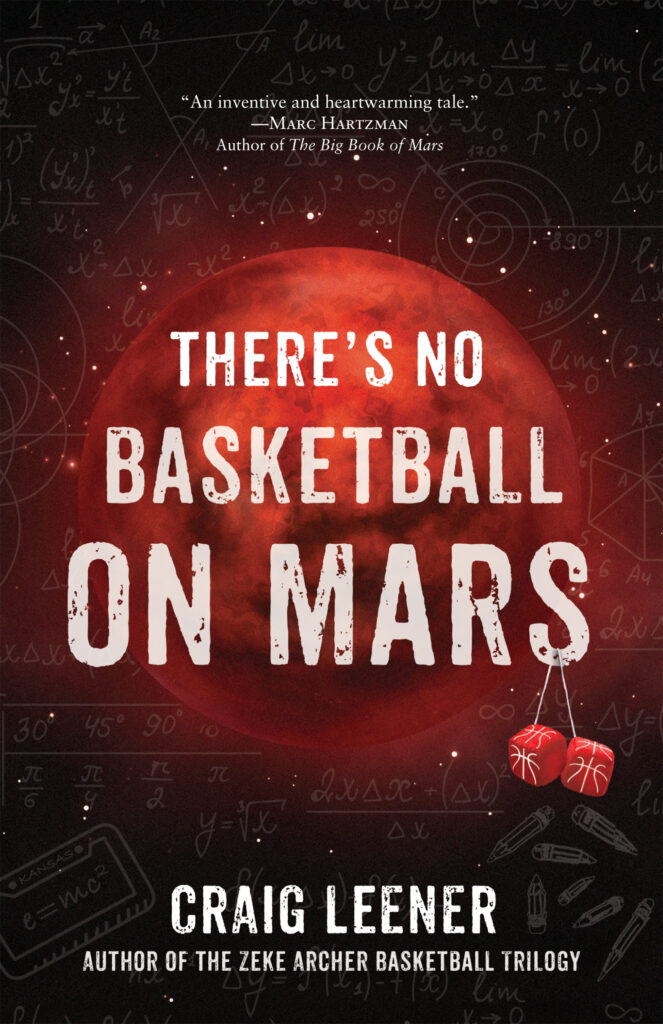
I have no way and no intention whatsoever to hide the reason why I was drawn into reading and reviewing Craig Leener’s “There’s No Basketball on Mars” even before I read its blurb. Of course, it’s basketball.
I used to play as a child, and giving up at 15 is one of the very few regrets I have at this point in my life, so much that as soon as I got wiser I applied to be a referee. One way, or another, as Blondie sang back in the day.
This apparent involvement of basketball in the story is why I decided to give the book a chance (and to give myself a chance to ramble about it), even though the blurb didn’t present it as my usual taste in reading.
Needless to say, I’m so glad I didn’t pull back, because the book itself gave me so many things to think about and I’m sure it will stick with me for a long while.
The Book
I have to admit I’m not used to books or stories in general with an autistic main character, and I’m glad I got started with “There’s no basketball on Mars”. I was never diagnosed and I don’t think I would even if I was tested, but I could relate a lot to Lawrence’s character* and his longing for quiet, silence and a sort of safety distance to other people. To his disappointment in his routine being interrupted and in being forced to talk to strangers and his preference for keeping it simple and not waste too many words (that is wishful thinking when it comes to me, I know).
On the other hand, I also loved the character of Maya and how her extravaganza and her outspoken attitude made an impact on Sherman. It created a beautiful dynamic between those two apparently conflicting characters that ended up bonding in the most unexpected place. She really understood him from the start, and her efforts to bond with him are always on the appropriate side of things, or at least really close.
She goes dangerously close to the “too good to be true” if you ask me and it fits with the only small defect I found in the story: everything falls in its place too smoothly throughout the whole book. But it’s also true that it didn’t spoil my experience reading the book: the story is heartwarming in its unique way.
I could be wrong, but this book seems targeting a slightly different target demographics than myself (so many words to say younger, right?), and the fact that I still loved it the way I did speaks for the quality of the book. Or it means that I’m young after all, or both. Pick your favorite, I’ve already picked mine.
The review could end here: if you got here you already know that you should read There’s No Basketball On Mars. If that was the only reason why you clicked on this review, you can click away without regrets. But since I’ve been reviewing books for almost two years, I want to try and get a bit deeper.
+ Sherman – Sheldon
There was a voice that kept running in my head as I was reading the book and there was no way I could get rid of it no matter how hard I tried. Strange as it may sound, it was Sheldon Cooper’s voice repeating “I’m not crazy, my mum had me tested” over and over again.
Now, there are so many reasons why I fell out of love with The Big Bang Theory after the first couple of seasons. The normalisation of meanness between (supposedly) friends and colleagues, sexist jokes in bad disguises, a representation of geeks that I (a self-proclaimed geek) find dangerous and harmful, you name it. I could even write a full-length piece about it if I ever find the courage to re-watch it.
Before reading There’s No Basketball On Mars I’d never given too much importance to that precise sentence about “being tested” for “craziness” (whatever flavour of it, I don’t remember it ever being explained) as if it was supposed to make someone less than normal.
But now that I’ve done that, I can’t help but being triggered even more by that. If you think about it, that sentence describes the attitude of someone who’s desperately trying to fit in a harmful societal structure instead of embracing diversity. As if there was normality, and anything outside of it was less-than.
The media we consume can shape biases and prejudices of people, even when they hide behind jokes and comedy. And this is why it’s important to have diverse protagonists showing us that sky is (quite literally) the limit.
*Or maybe I should call him Sherman, I’m not sure I’d fit in his best friends list and I better respect it.
Be First to Comment